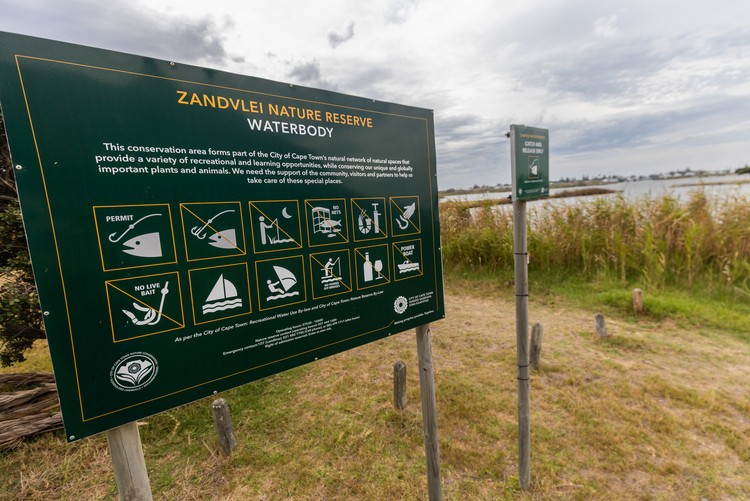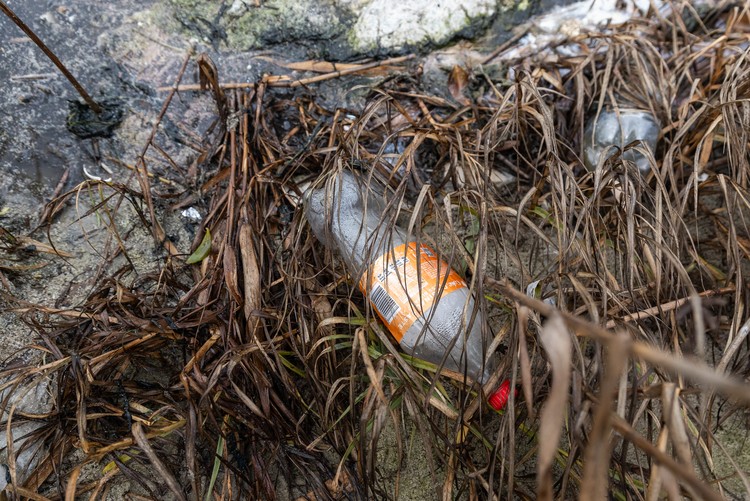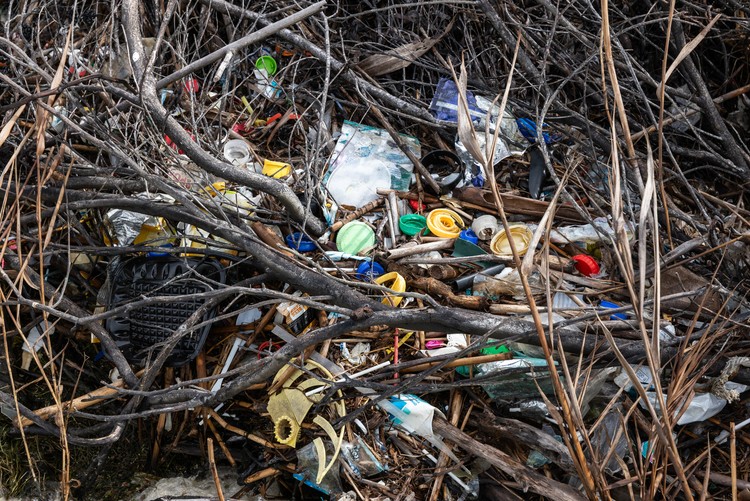Should Coca-Cola pay for plastic pollution?
Episode five in GroundUp’s video series on microplastics
Since publication of this article, the studies that show high levels of microplastics in humans have been disputed.
Tons of plastic packaging fill our rivers, wetlands and seas, yet the large multinational corporations that produce them face little accountability.
At the Zandvlei estuary in Lakeside, which is home to indigenous fish and birds, the stakes are high. One grey morning, we waded through the water to find hundreds of plastic items – cool drink bottles and caps, polystyrene, and chip packets – stuck between the reeds.
A bottle manufactured by the Coca-Cola company lies on the north shore of Zandvlei, a vlei in Lakeside, Cape Town. Photos: Ashraf Hendricks
Hardly any people go to the north shore of Zandvlei, yet it is blanketed with plastic pollution. The plastic has been blown there by Cape Town’s south-easterly winds. Photo: Ashraf Hendricks
These plastic items will never fully break down and will turn into microplastics that continue to impact the environment, including human health.
Among the world’s top plastic polluters are The Coca-Cola Company, Nestlé, Unilever, PepsiCo, Mondelēz International, Mars, Incorporated, Procter & Gamble, Danone, and tobacco giants Altria and British American Tobacco, according to Break Free From Plastic.
These companies often have self-regulated recycling initiatives with targets that are often missed. Globally, only about 9% of plastic is recycled. The rest ends up in landfills, incinerators or the environment.
From 5 to 14 August, delegates from more than 170 countries will meet in Geneva for the final round of Global Plastics Treaty negotiations.
It will be a defining moment: whether the world chooses binding limits on plastic production, or delays with vague commitments to improved waste management.
Support independent journalism
Donate using Payfast

Don't miss out on the latest news
We respect your privacy, and promise we won't spam you.
Next: Corruption fight put at “risk” by moving Special Tribunal
Previous: Carletonville left in the dark for more than a month
© 2025 GroundUp. This article is licensed under a Creative Commons Attribution-NoDerivatives 4.0 International License.
You may republish this article, so long as you credit the authors and GroundUp, and do not change the text. Please include a link back to the original article.
We put an invisible pixel in the article so that we can count traffic to republishers. All analytics tools are solely on our servers. We do not give our logs to any third party. Logs are deleted after two weeks. We do not use any IP address identifying information except to count regional traffic. We are solely interested in counting hits, not tracking users. If you republish, please do not delete the invisible pixel.



